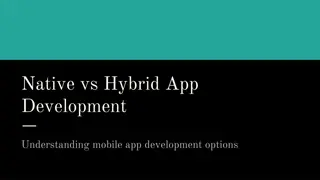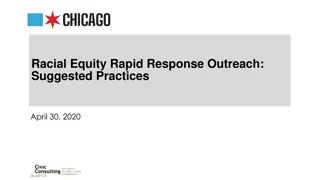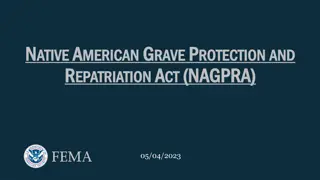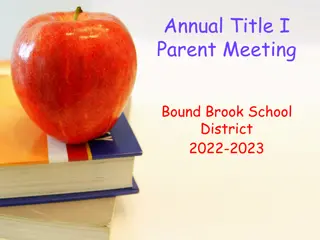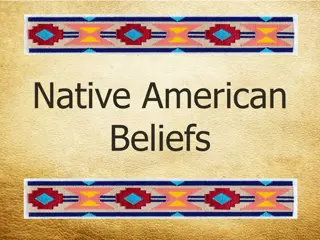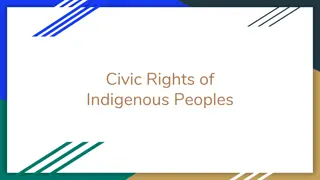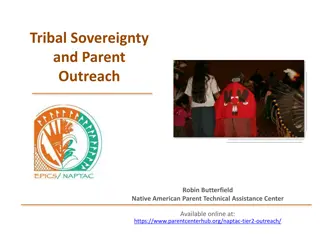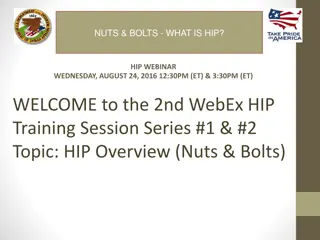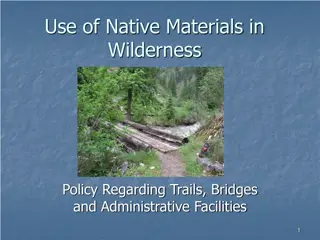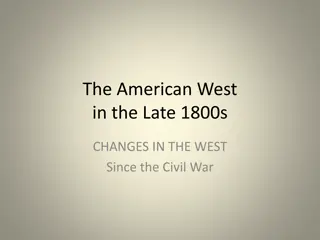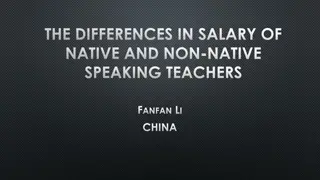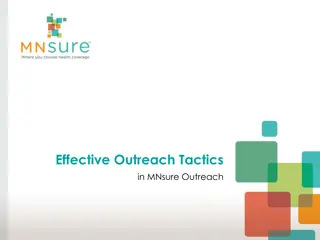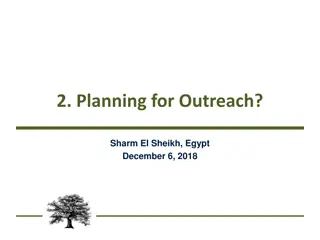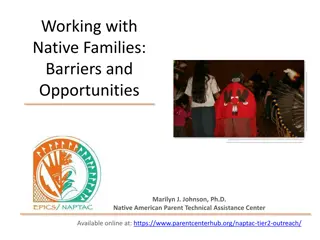Effective Outreach Strategies for Native Parents under Title VI
Key questions and insights on outreach to Native parents through Title VI and Indian Education Act implications, including legislative changes and services provided. Discover effective ways to engage and support Native parents in education settings.
Download Presentation

Please find below an Image/Link to download the presentation.
The content on the website is provided AS IS for your information and personal use only. It may not be sold, licensed, or shared on other websites without obtaining consent from the author.If you encounter any issues during the download, it is possible that the publisher has removed the file from their server.
You are allowed to download the files provided on this website for personal or commercial use, subject to the condition that they are used lawfully. All files are the property of their respective owners.
The content on the website is provided AS IS for your information and personal use only. It may not be sold, licensed, or shared on other websites without obtaining consent from the author.
E N D
Presentation Transcript
Outreach to Native Parents Through Title VI Robin Butterfield Native American Parent Technical Assistance Center Available online at: https://www.parentcenterhub.org/naptac-tier2-outreach/
Overview of Presentation Key Outreach Questions Indian Education Act: Why? Unique Legislation Legislative Changes Services Provided Implications for Parent Center Staff
Thats Me! Answer each statement that applies to you by standing and proudly proclaiming That s me! Or press the letters TM in the answer window of this webcast.
What | So What | Now What? Let s reflect. What did we just do? What did we find out?
W We dont see things as they are, . . .Anais Nin W We see them as we are.
Education There is no such thing as a neutral educational process. Education either functions as an instrument which is used to facilitate the integration of the younger generation into the logic of the present system and bring about conformity to it, or it becomes the practice of freedom, the means by which men and women deal critically and creatively with reality and discover how to participate in the transformation of their world. Paolo Friere
Indian Education Act: Why? As early as 1744, an Indian elder described members who returned from schools of the white man, as being unfit for tribal life, not able to speak the tribal language well, unfit to be counselors, and hence unable to make worthwhile contributions to the tribe.
Key Outreach Questions What are the most effective ways to publicize our next workshop for Native parents? Who knows the Indian community best in our area? Who might have a history with Native students in the school district? Who could be called upon to serve as an advocate for Native parents who need to attend an IEP meeting? Who might be able to give some history of the Native community in our area?
About 93% of Native students attend public schools, Indian Education Act: Why? but there exists little in the curriculum to attend to their cultural needs. Native Students are Native high school students disproportionately are also retained suspended from school. disproportionately. American Indian/Alaska AI/AN males represent 0.6% Native (AI/AN) high of all students, yet 2% of school students are students are expelled without chronically absent (26%). educational services.
More than 1 out of 5 Indian Education Act: Why? AI/AN males with disabilities served by IDEA received one or more out of school suspensions compared to 1 out of 10 white males with disabilities served by IDEA
Indian Education Act: Why? It is the policy of the United States to fulfill the Federal Government s unique and continuingtrust relationship with and responsibility to the Indian people for the education of Indian children.
The Federal Government will continue to work with local education agencies, Indian tribes and Indian Education Act: Why? organizations, postsecondary institutions, and other entities toward the goal of ensuring that programs that serve Indian children are of the highest quality and provide for not only basic elementary and secondary educational needs, but also the unique educational and culturally related academic needs of these children.
Early Recognition of Unique Needs for Federal Funds for Indian Education Congress authorized targeted funds to improve Indian education Johnson O Malley(PL 81-874, 1958) | Funds were allocated to provide supplemental services for Native children Indian Education Act (1972) | Reauthorized in 1974, 1988, 1992, 1994, & 2015 Native American Languages Act (PL 101-477, 1990/ 1992)
Unique Legislation: Indian Education Act What makes this legislation unique? 1 2 It recognizes that American It is the only Indian/Alaska Natives(AIAN) comprehensive Federal have unique educational and legislation that provides for culturally related academic educational opportunities needs and distinct language from pre-school to and cultural needs. graduate level.
Unique Legislation: Indian Education Act What does this legislation provide? 3 It focuses national attention 4 It provides services on the educational needs of to AI/ANs that are not AI/AN learners, reaffirming provided by the Bureau of the Federal government s Indian Affairs, and to the special trust responsibility for over-93% of Native students the education of Native attending public schools. people due to treaties.
Indian Education Act: Legislative Changes The Act primarily authorizes formula and competitive grants directly to local educational agencies, tribes, and tribal organizations Teacher training programs and fellowships for Natives seeking to become teachers [Title IV, 1974] BIA schools became eligible for grants, and authorization for Gifted and Talented was added [Title V, 1988] Comprehensive educational plans to meet high academic standards were added [Title IX, 1994]
Indian Education Legislative Changes Currently, the Indian Education Act strengthens the priorities of: collaboration between tribes and school districts, and As part of the Elementary and Secondary Act (ESEA)|No Child Left Behind, the formula grants were to be based on the same challenging content standards as all students [Title VII, 2001] increased tribal language programs [Title VI, 2015]
Basic Services Provided Attendance strategies Regular parent meetings / family events Native cultural activities Transition strategies Counseling Tutoring Cultural resources Youth activities / Native games Dropout strategies Learning events Summer programs / camps Field trips other Newsletters
Implications for Parent Center Staff: Improving Outreach to Native Parents Regular meetings Newsletters Posters or flyers disseminated Targeted trainings Expanded networks Title VI trainings for Parent Center Staff
Questions? Concerns? Comments?







